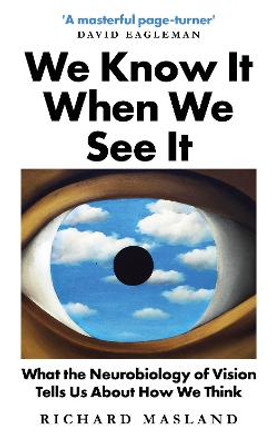Description
Why does knowing more mean believing-and doing-less? A prescription for change
The more facts that pile up about global warming, the greater the resistance to them grows, making it harder to enact measures to reduce greenhouse gas emissions and prepare communities for the inevitable change ahead.
It is a catch-22 that starts, says psychologist and economist Per Espen Stoknes, from an inadequate understanding of the way most humans think, act, and live in the world around them. With dozens of examples-from the private sector to government agencies-Stoknes shows how to retell the story of climate change and, at the same time, create positive, meaningful actions that can be supported even by deniers.
In What We Think About When We Try Not To Think About Global Warming, Stoknes not only masterfully identifies the five main psychological barriers to climate action, but addresses them with five strategies for how to talk about global warming in a way that creates action and solutions, not further inaction and despair.
These strategies work with, rather than against, human nature. They are social, positive, and simple-making climate-friendly behaviors easy and convenient. They are also story-based, to help add meaning and create community, and include the use of signals, or indicators, to gauge feedback and be constantly responsive.
Whether you are working on the front lines of the climate issue, immersed in the science, trying to make policy or educate the public, or just an average person trying to make sense of the cognitive dissonance or grapple with frustration over this looming issue, What We Think About When We Try Not To Think About Global Warming moves beyond the psychological barriers that block progress and opens new doorways to social and personal transformation.
About the Author
Per Espen Stoknes is a psychologist and an economist. An entrepreneur, he has cofounded clean-energy companies, and he spearheads the BI Norwegian Business School's executive program on green growth. He has previously worked both as a clinical and organizational psychologist and as an advisor in scenario planning to a wide range of major national and international businesses, government agencies, and nonprofit institutions. His research interests include climate and environmental strategies, economic psychology, and energy systems. Teaching areas include green growth, foresight and corporate strategy, behavioral economics and expressive arts. He has written three books, including Money and Soul. He lives in Oslo, Norway. Jorgen Randers is professor of climate strategy at the BI Norwegian Business School, where he works on climate issues and scenario analysis. He was previously president of BI and deputy director general of WWF International (World Wildlife Fund) in Switzerland. He lectures internationally on sustainable development and especially climate, and is a nonexecutive member of a number of corporate boards. He sits on the sustainability councils of British Telecom in the UK and the Dow Chemical Company in the United States. In 2006 he chaired the cabinet-appointed Commission on Low Greenhouse Gas Emissions, which reported on how Norway can cut its climate gas emissions by two-thirds by 2050. Randers has written numerous books and scientific papers, and was coauthor of The Limits to Growth in 1972, Beyond the Limits in 1992, Limits to Growth: The 30-Year Update in 2004, and 2052: A Global Forecast for the Next Forty Years in 2011. Randers lives in Oslo, Norway.
Reviews
Choice, , winner, Outstanding Academic Title 2015-
"Stoknes (a psychologist, economist, and entrepreneur based in Norway) does not explain climate change. Rather, he illuminates barriers that prevent solving problems caused by increasing global temperatures while simultaneously giving a clear strategy to overcome these hurdles. The book's three parts-'Thinking: Understanding the Climate Paradox,' 'Doing: If It Doesn't Work, Do Something Else,' 'Being: Inside the Living Air'-examine how people think about climate, what individuals can do to affect climate, and how one relates to environment. Each is well researched and insightful and offers powerful proposals. Stoknes explains why so many people have laissez-faire attitudes to dire predictions from the scientific community, and he reveals tactics employed by those wishing to conduct business as usual. He poses a clear blueprint for new ways to engage in global climate discussions. This reviewer notices that many journalists are adopting Stoknes' designs-evidently his ideas are becoming mainstream. Although he successfully addresses the climate issue, it is clear that Stoknes has something bigger in mind as he expertly describes contemporary human relationships with the natural world and offers hope for a revitalized ecological link. This book will initiate a paradigm shift in thinking about and discussing climate change. Read it soon. Summing Up: Essential. All readers."
Library Journal-
"Norwegian psychologist and economist Stoknes (Money and Soul) has produced a work about the psychological effects of global warming messages. While accepting dire facts and projections put forth by scientists, the author argues that their usual type of presentation is counterproductive. Providing audiences with abstract but scary information requiring sacrifice has produced apathy and denial among citizens of wealthy nations, the author says. Stoknes notes that there are social barriers against discussing the situation, and it can be politically divisive. However, ethics require all of us to find valid ways to combat climate disruption, he states, adding that we need to harness ancestral human drives to this task. Messaging needs to be simple, positive, and social to lead to mass behavioral change. The author commends movements such as Transition Town, which promotes community resilience and explains that the many inspiring stories about green innovation can help shift public attitudes over time. VERDICT: Stoknes has done a service for readers alarmed or concerned about global warming. He provides helpful strategies for accepting and dealing with their own reactions to the evidence, reducing carbon footprints, and influencing others to do likewise."
Publishers Weekly-
Stoknes (Money and Soul), a Norwegian psychologist and economist, addresses the polarized American debate over anthropogenic climate change, observing how it has devolved into 'a deteriorating and desperate spiral.' In this earnest and well-organized volume, he introduces a new aspect to the discussion, focusing not on the phenomenon's causes or consequences, but people's responses to it, including how they think, what they do, and how they live in the world. Stoknes puts a cognitive-psychological spin on the matter at hand and differentiates among climate 'skeptics,' 'contrarians,' and 'deniers,' distinguishing active and passive forms of denial. He also looks at evolutionary self-interest and the ways in which people can use social networks to further their goals. People like to believe their actions matter, he notes, and a solution is more likely to be implemented 'when people want it, like it, love it,' not when they are guilted or shamed into it. The more people 'see happy others conserve energy ... the more they are inclined to support ambitious climate policies on local, state, and national levels.' Framing the argument in this manner, Stoknes effectively combines talk of social psychology with environmental activism."
"Stoknes offers expert insights, drawn from the discipline of psychology and the art of storytelling, to the high-stakes quandary of our time: Why the response to climate change has not, yet, come close to matching the overwhelming magnitude and sophistication of the scientific evidence. He peels away the multiple layers of passivity-inducing narratives, and demonstrates how avoiding climate caricatures-apocalypse on one hand, ecotopia on the other-is the most effective way to prompt action. His alternative narratives, highlighting the many co-benefits of a switch away from fossil fuels, suggest a broad common ground across the ideological spectrum."--Mark Schapiro, author of Carbon Shock: A Tale of Risk and Calculus on the Front Lines of a Disrupted Global Economy
"Science is no longer the bottleneck to action on climate change. Why do we so often ignore, deny, and resist the science? Why aren't we outraged, demanding change? In a style both rigorous and personal, Per Espen Stoknes explains why, and more importantly, offers strategies for success. A pleasure to read, this book can help us all become more understanding, more committed, more effective-and, along the way, more joyful."--John Sterman, professor, MIT Sloan School of Management, and author of Business Dynamics: Systems Thinking and Modeling for a Complex World
"Mahatma Gandhi said 'First they ignore you, then they laugh at you, then they fight you, then you win.' We're in this last phase but to win we need to change tactics, from using guilt to draw attention to instead using persuasion to change behavior and policy at a mass scale. Per Espen Stoknes shows the way with this brilliant description of how to go with rather than against the flow of human nature and thus shift society to action. There is no more important challenge facing society today and Stoknes's contribution is crucial."--Paul Gilding, author of The Great Disruption
"How, most effectively, to communicate the reality and ramifications of a slow-motion planetary meltdown? Whether you are a scientist or a CEO, an activist or a slacker, this book provides a simple toolkit for breaking down frozen attitudes. As a work that surveys a great deal of psychological research, it's at once accessible, practical, and - in its last third - richly reflective and evocative. In these concluding chapters Stoknes wrestles eloquently with the ways in which earthly calamity reverberates and sometimes wreaks havoc in any person's innermost sense of self and meaning."--David Abram, author of The Spell of the Sensuous
"In a fresh and intimate voice Per Espen Stoknes navigates the obstacles and collective denial of climate change. Drawing on his own deep love of nature he suggests ways to overcome our 'Deep Grief' by creating a spiritual connection with the air around us. In every way this is a book full of new perspectives and insights."--George Marshall, author of Don't Even Think About It: Why Our Brains are Wired to Ignore Climate Change
"Combining an entrepreneur's innovation with an economist's analytics and a psychologist's knowledge of human behavior, Per Espen Stoknes gives us a much-needed guide to moving beyond the politics and paralysis that generally cripple action on climate change, and provides us with concrete ways to inspire grounded hope for real climate solutions"--Heidi Cullen, chief scientist, Climate Central
"The human brain is poorly equipped to cope with mind-numbing problems like climate change. Per Espen Stoknes tell us why-and then explains what we can do to change the way we think, act, and live. Highly recommended."--John Elkington, cofounder of Volans, SustainAbility, and Environmental Data Services (ENDS), and coauthor of The Breakthrough Challenge
"If information enlightened, then effective climate policies would have been put in place two decades ago, after the second IPCC assessment. The recent, massive fifth assessment enlightens only a teeny bit more. Stoknes' small, powerful, readable book enables us to build the social networks that will lead to action and change our old stories, the blinders that comfort so many along our path to destruction. Read it, get to work, and find joy in being effective."--Richard B. Norgaard, coauthor of The Climate Challenge Society and professor emeritus, University of California at Berkeley
Book Information
ISBN 9781603585835
Author Per Espen Stoknes
Format Paperback
Page Count 320
Imprint Chelsea Green Publishing Co
Publisher Chelsea Green Publishing Co
Weight(grams) 481g
Dimensions(mm) 229mm * 153mm * 26mm








